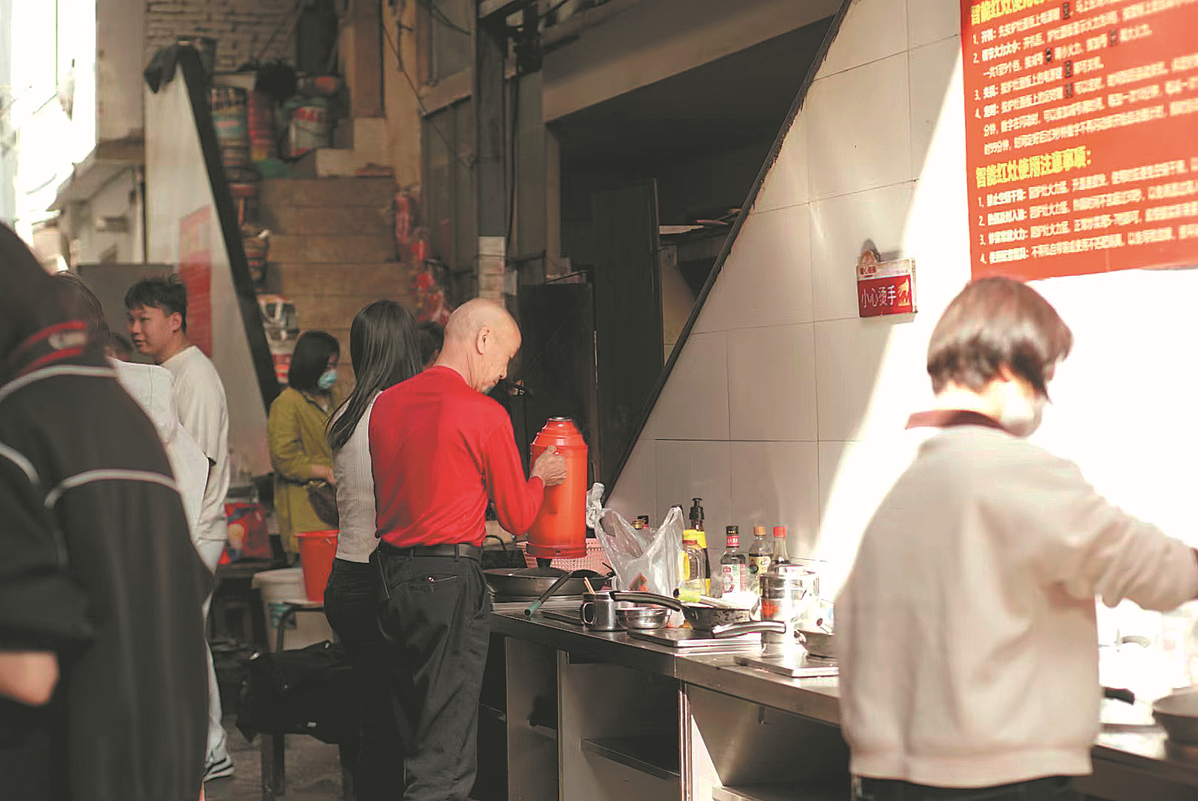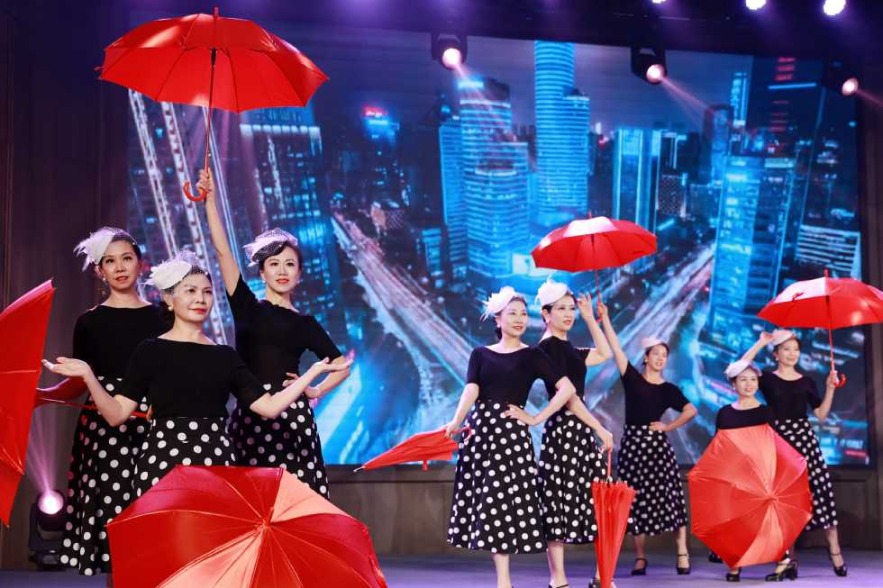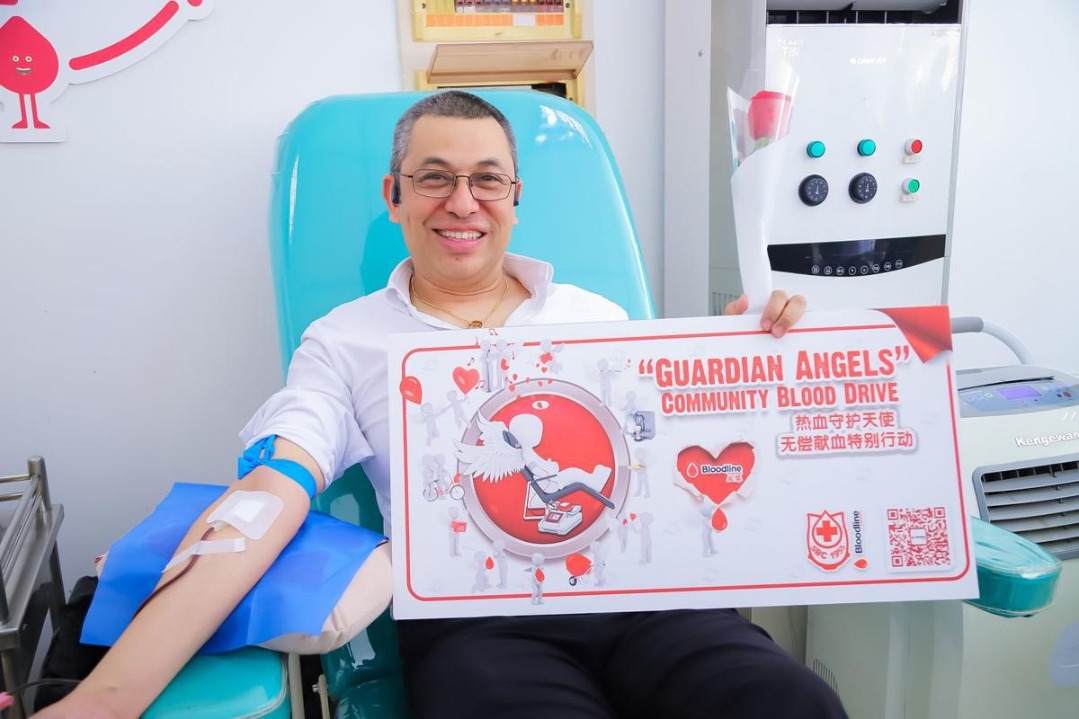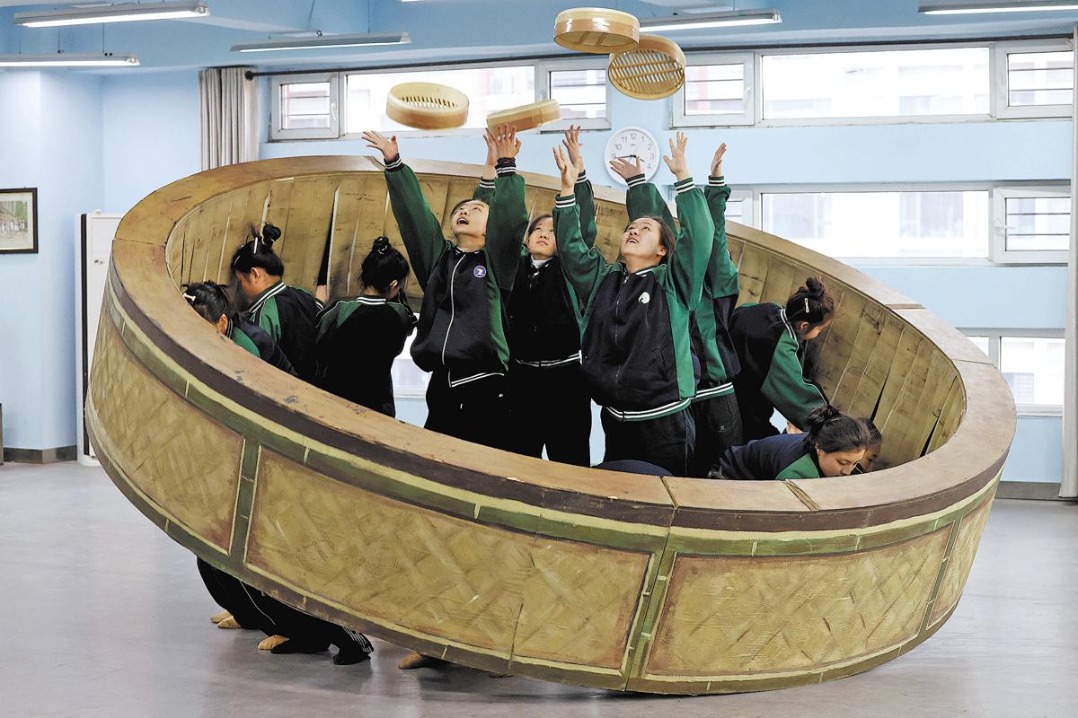Cooking convenience for cancer patients
Couple invites hospital visitors to prepare meals for ailing loved ones in special kitchen


Wan Zuocheng, 70, starts his day at 4 am.
The first thing he does after heading downstairs is fire up over a dozen stoves and get his kettle going. He boils a large amount of water every day to help the families of cancer patients with their cooking.
Knowing that patients generally have a poor appetite after chemotherapy, he also prepares many pots of porridge.
His wife, 68-year-old Xiong Gengxiang, handles rice cooking. She cooks more than 10 pots of rice a day. At 9 am, the couple welcomes their first batch of customers and keeps serving until the last customer leaves around 8 or 9 pm.
The special kitchen is located in Qingshan Lake district in Nanchang, East China's Jiangxi province, right next to Jiangxi Cancer Hospital. Over the past two decades, it has become widely known as the "anti-cancer kitchen" for providing inpatients and their families with a convenient place to cook meals.
The couple provides the use of their stoves and kitchenware to the public for a very low price — a mere 1 yuan ($15 cents).
The kitchen was originally a breakfast stall that Wan and Xiong operated. They used to cook youtiao, or deep-fried dough sticks, which were well-known in the neighborhood.
One day in 2003, a young couple walked by and asked if they could use the stove to cook food for their son. The boy, then a teenager, was suffering from bone cancer. He wanted to eat his mother's cooking while he was hospitalized.
Wan and Xiong let the young mother use their stove for free. Later, they offered the use of the stove and their kitchenware at no charge to other families who wanted to make meals for their hospitalized relatives.
As word spread about the couple's deed, people who had used their kitchen began referring to the stall as "anti-cancer kitchen". Some even started calling it "kitchen of love" that made them feel warm.
To enable more people to cook at the same time, Wan and Xiong purchased more stoves and kitchenware and transformed their little stall into a larger kitchen.
"Everyone who comes here to cook has a family member suffering from cancer," Wan said. "Patients always want to eat meals cooked by their family members, so it (running the kitchen) is a great thing for us."






























